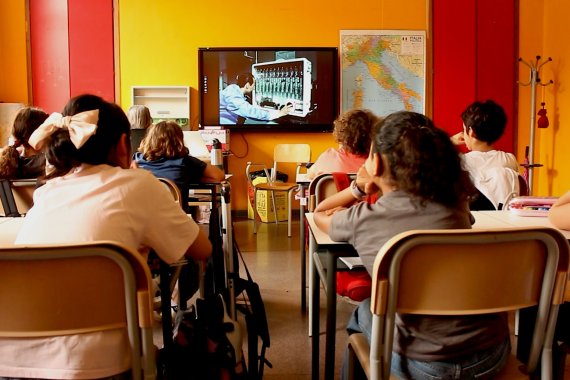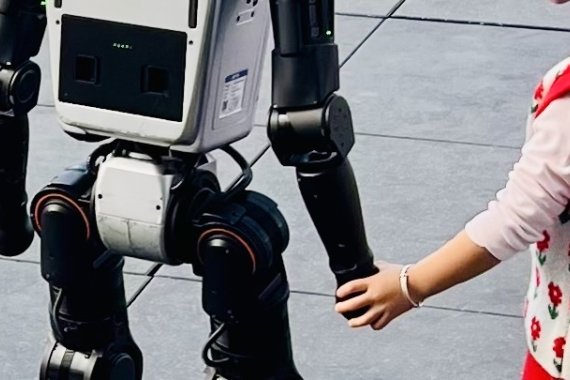How the ITCILO supports Italian public employment services through human-centred training
How the ITCILO supports Italian public employment services through human-centred training
Italy’s future National School for Active Labour Policies is shaping a culture of collaboration, innovation, and impact
30 Septiembre 2025
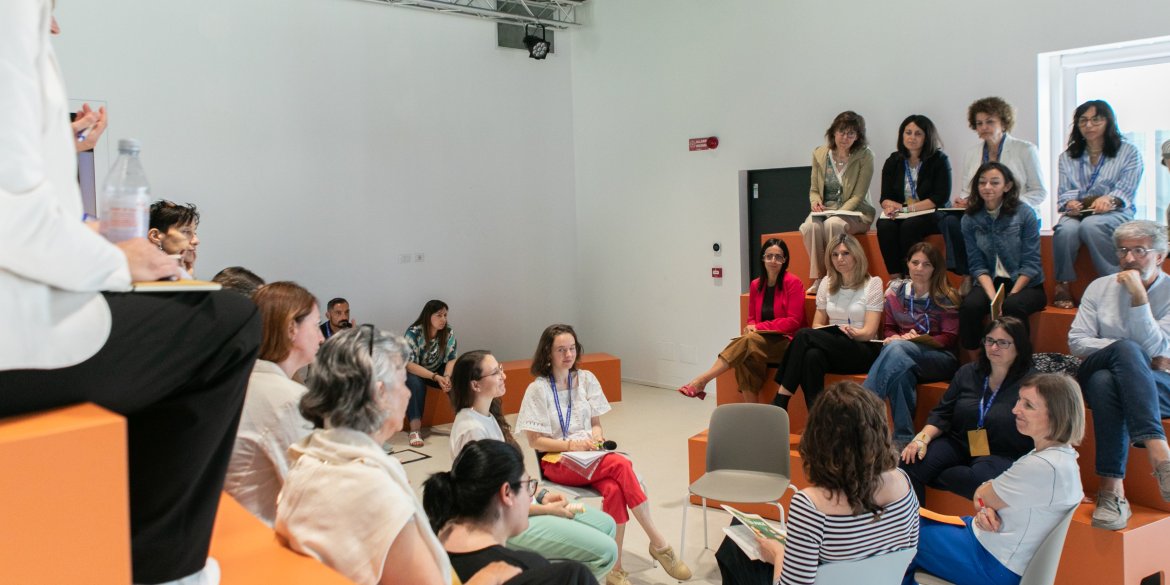
The circle of chairs was already forming when the first participants trickled into the room. As everyone took their seats, the discussion began, “How might we transform our School into a space for innovation and collaboration? How might training activate people and systems? How might learning experiences drive real cultural change?”
For five days in Turin, 25 professionals from Sviluppo Lavoro Italia (SLI) left behind their offices, titles, and routines to engage in something different. This wasn’t the average training of trainers, but rather a live laboratory designed to reshape how learning will happen in Italy’s public employment services (PES). This was the first in-person milestone in an ambitious partnership between ITCILO and SLI to launch a new national training institution: the National School for Active Labour Policies.
We go into this journey with open minds. By the end, we want to see real progress in how we use methodologies and technologies. The School must take a step forward, and each of us has the responsibility to bring back lessons that can be applied in practice.
Federico Conti
Head of the Technical Secretariat and of the National School Project, Sviluppo Lavoro Italia
They all shared a common objective: how to design a national school that could overcome fragmentation across regions and give Italy’s employment services a shared direction for the future. Meeting this ambition requires not only new skills but a shared culture of collaboration across regions. The National School for Active Labour Policies is the response to this challenge, and this learning event marks the project’s first milestone.
Building the future of learning for employment services
Italy’s public employment services are facing increasing pressure to adapt fast. From digital disruption to green transition, frontline staff are expected to navigate a fast-changing world of work while staying connected to local realities. That means new skills, but also new mindsets.
The National School was born to meet this need. A bold initiative of the Ministry of Labour and Social Policies, steered and governed by SLI, the National School aims to become more than a training provider. It's designed to be an engine of coherence and collaboration across Italy’s regional employment services, building a shared language, a shared quality, and a vibrant professional community.
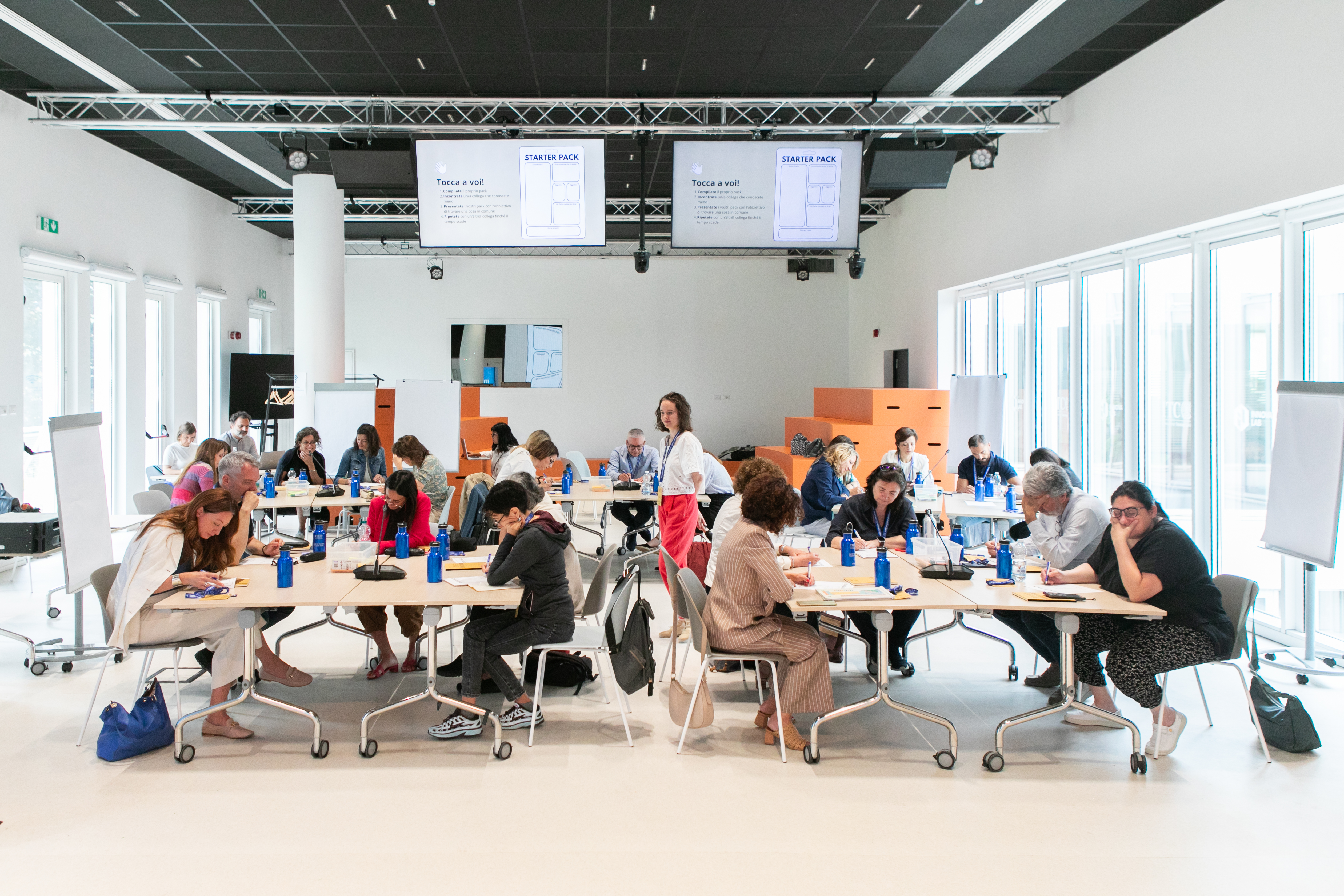
ITCILO joined the mission in late 2024 to help make it real. The collaboration focuses on two fronts: strengthening the School as an institution and designing future-fit learning experiences. That journey began with an intensive training of trainers at the UN Campus in Turin. But it was much more than a course. It was a lab for rethinking how learning happens, and for whom.
Three key ingredients elevated the learning experience:
1. Learning by doing
Participatory methods were both the focus and the format of the training, critically examined in concept and actively embodied through each activity. Participants became co-creators through dynamic discussions, critical thinkers through collaborative design sprints, and reflective strategists through target peer coaching exercises.
Learning by doing remained at the heart of the training approach, equipping participants with new learning methodologies and technologies through hands-on practice and experimentation. By exploring every stage of the instructional design cycle, they co-designed training solutions that can travel, adapt, and stick at the School.
2. Playful with purpose
To create an engaging blended learning experience, ITCILO Learning Innovation Programme’s facilitators deployed a mix of immersive tools, including virtual whiteboards for real-time collaboration, interactive polls for gathering feedback, and virtual networking platforms for more informal, social exchanges. Participants not only examined the current state of learning but also explored its most advanced technologies, witnessing holographic technology and participating in a broader UN event that envisioned a new digital future where AI-powered worlds contribute to building resilient societies.
Every concept explored during the programme was critically analyzed with one goal: usability at and for the School. Live demonstrations of technology-enhanced solutions and deep dive discussions on the integration of data-driven AI services were always rooted in the reality of the School.
3. Human-centred means slowing down, too
The journey started not with content, but with people. Before the participants met in Turin, they explored each other’s challenges in an online reality-check session, which extended into in-person peer coaching sessions.
Using tools like empathy mapping, they stepped into the shoes of their target learners to better understand how the School’s training offering should be shaped. Moments of strategic reflection and paired debriefs enabled learners to digest the takeaways and slow down the dynamic training programme.
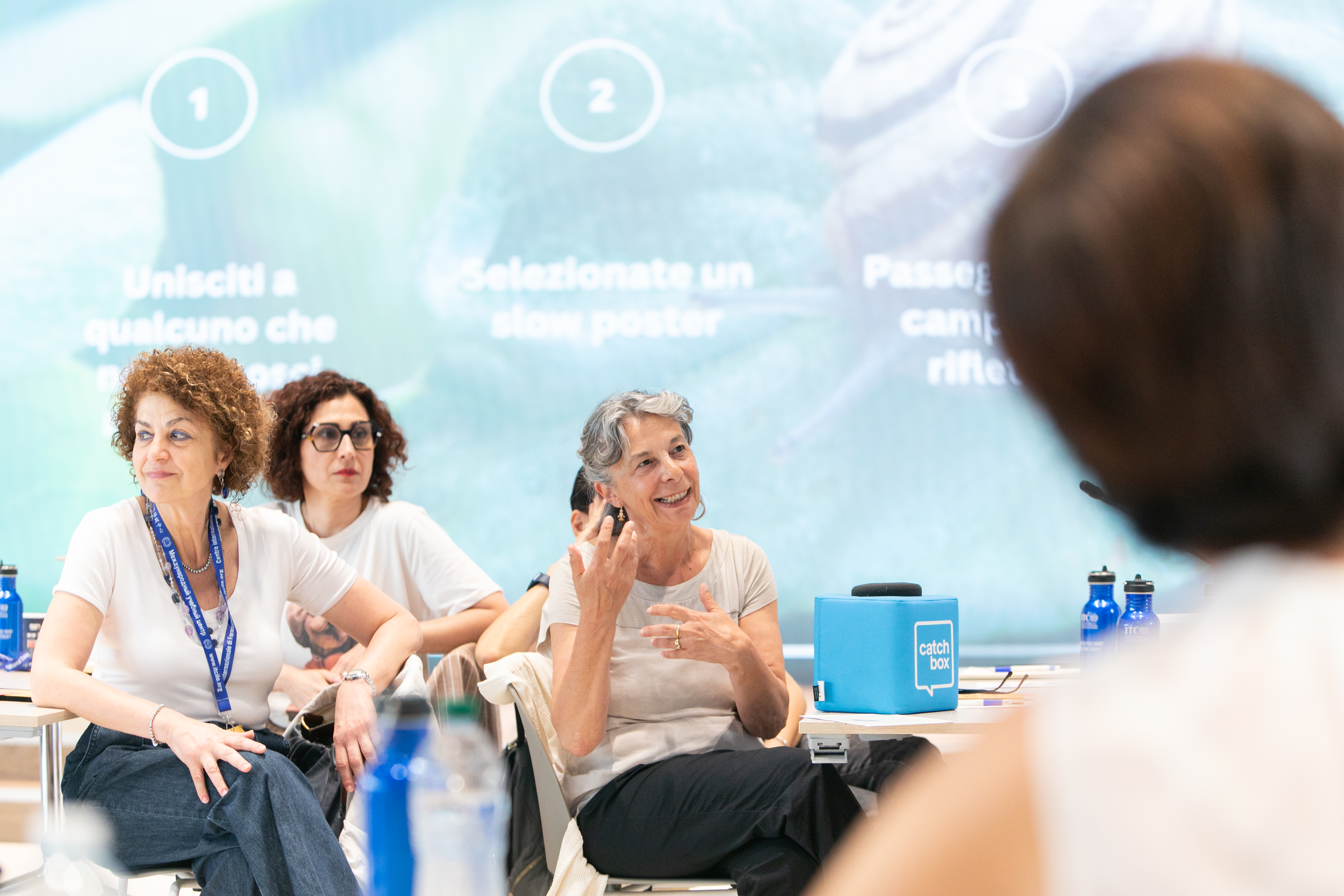
From Turin to the territory
This is only the beginning. Over the next months, ITCILO will support the School in enhancing its offering on the much-needed soft skills for public employment officers, and in growing a digital learning ecosystem where training is continuous, personalized, and participatory.
I imagine a School to become a collaborative, human-centered hub for innovation, with solid partnerships, autonomous governance, and international reach.
Marina Camarda
Sviluppo Lavoro Italia
The School is envisioned as more than a training provider: it will be a hub that connects staff into a living community of practice, strengthens coherence across Italy’s regions, and projects outward with international partnerships. This is how it will turn training into real impact for public employment services and, ultimately, jobseekers.
Want to see what public sector learning looks like when it’s collaborative, creative, and courageous? Follow their journey to witness the next generation of Italian public service professionals.
